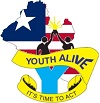 Building the resilience of vulnerable communities and human rights defenders in Liberia is essential for the country’s sustainable development and social cohesion. By addressing the challenges they face and implementing comprehensive support strategies, Liberia can create a more inclusive and equitable society where every individual has the opportunity to thrive.
Building the resilience of vulnerable communities and human rights defenders in Liberia is essential for the country’s sustainable development and social cohesion. By addressing the challenges they face and implementing comprehensive support strategies, Liberia can create a more inclusive and equitable society where every individual has the opportunity to thrive.
With co-funding from European Union, Youth Alive Liberia and Liberian Women Empowerment Network (LIWEN) in partnership with Actionaid Liberia has been implementing the project ‘strengthening resilience of key pop and Human Rights Defenders’ in Liberia. Despite the socio-economic challenges, Liberia continues to strive towards stability and development and one of the critical aspects of this progress is the resilience of vulnerable communities and human rights defenders. These individuals and groups are essential in promoting social justice, equality, and human rights protection, yet they often face substantial challenges.
The marginalized communities such as women, youth, ethnic minorities, LGBTQ+ individuals, and people living with disabilities, play an essential role in the socio-economic development of the country. Human rights defenders, including activists, lawyers, journalists, and community leaders, advocate for the rights and well-being of these groups, but in the process, they often face great risks.
 This project has been conducted in Bong and Montserrado Counties, packed with different intervention. Training of local authorities and traditional leaders was conducted in Bong County, comprising a total of 40participants; who received capacity building around security and advocacy as it relates to Human Rights Based Approach so as to engage their own structures in Bong. These local authorities included: County Education team, Superintendent Officers, Traditional leaders, Justice (both court and prosecution officers), Liberia National Police (both Gender and patrol officers), County health team, Religious leaders (Muslims and Christians), and Disable community attended the training.
This project has been conducted in Bong and Montserrado Counties, packed with different intervention. Training of local authorities and traditional leaders was conducted in Bong County, comprising a total of 40participants; who received capacity building around security and advocacy as it relates to Human Rights Based Approach so as to engage their own structures in Bong. These local authorities included: County Education team, Superintendent Officers, Traditional leaders, Justice (both court and prosecution officers), Liberia National Police (both Gender and patrol officers), County health team, Religious leaders (Muslims and Christians), and Disable community attended the training.
YAL also conducted awareness and community outreach activities on human and constitutional rights using the Human Rights Based Approach in each county in order to have an aware community, an improved collaboration with the communities, Enhanced community ownership and understanding of basic human rights. A mass media was inducted, through radio talk shows and dissemination of IEC materials in all the two counties. All these were conducted to disseminate positive information on human and constitutional rights and holding duty bearers accountable for upholding human and constitutional rights, and challenging cases of abuse and discrimination against people based on their sexual orientation mechanisms for LGBTIQ+ people and their Human Rights Defenders both in law and in practice.
The project also saw a total of 20 human rights defenders trained on human rights, to increase their knowledge and skills on gender responsive service provision as well as strengthen collaboration efforts with state service providers especially police for the safety and protection of key populations and Human Rights Defenders. This will enable them have greater understanding of human rights, constitutional rights and how to apply them in their work.
Building the resilience of key population groups and human rights defenders in Liberia is essential for the country’s sustainable development and social cohesion. By addressing the challenges they face and implementing comprehensive support strategies, Liberia can create a more inclusive and equitable society where every individual has the opportunity to thrive. It is imperative for the Liberian government, international organizations, civil society, and community leaders to collaborate in these efforts. Strengthening the resilience of these crucial groups will not only benefit them but will also contribute to the overall progress and stability of Liberia.
Youth Alive Liberia will continue working in collaboration with all the partners, including members to strengthen resilience and ensure that human rights defenders are also protected and empowered to serve the vulnerable.
